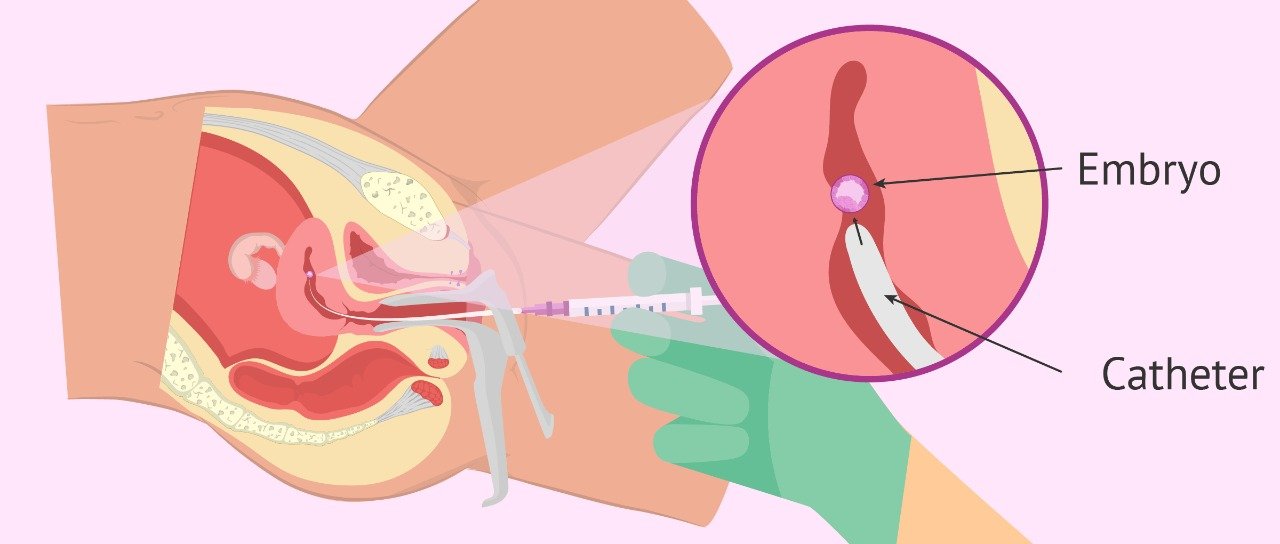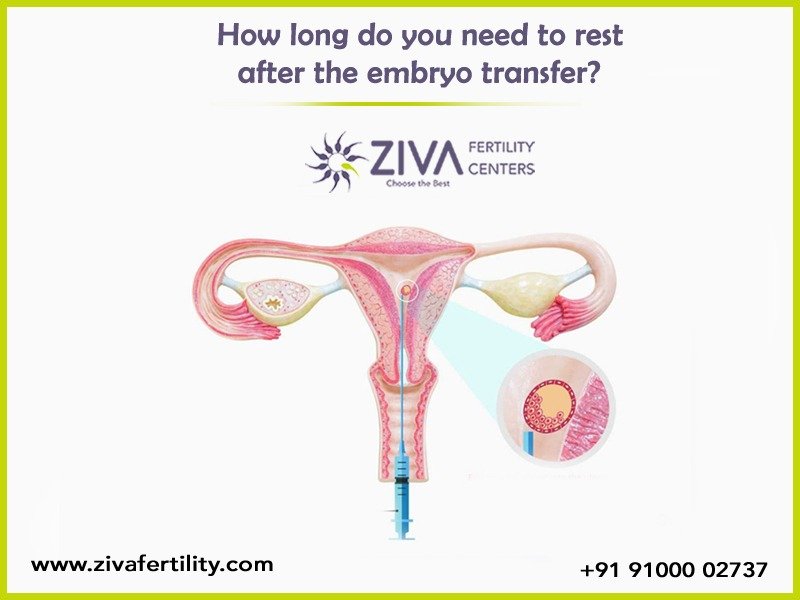The three basic guiding principles behind IVF are – extracting the eggs from the ovary, fertilizing them in the laboratory, and finally placing the resultant embryos in the uterus. This entire process is done under the supervision of our expert team at ZIVA Fertility center. After these 3 steps are carried out, it is a waiting period from thereon. The medical team and the couple have to wait for the transplanted embryos to implant themselves into the uterus. It is quite common for women to worry that if they do something, the embryos might slip off or won’t attach themselves. But the good news is that the embryos won’t just fall off. Therefore, one should take it easy and relax. In this blog, let us understand “How long do you need to rest after the embryo transfer?”
The Embryo Transfer Simplified

During in vitro fertilization, the embryo(s) develop outside the female’s body in a Petri dish for three to five days. Then, the healthiest amongst them are transferred. First, using a vaginal speculum, the cervix is cleaned with sterile fluid. Then, using ultrasound, a thin, soft catheter is threaded through to the exact embryo placement location, which is 1 to 2 cm from the top of the uterine cavity. An embryologist will carry the embryo containing the catheter from the lab. Then the doctor will feed the catheter with the embryo(s) through the already placed catheter. The patient will see everything on the ultrasound screen. They will see the bubble of air and fluid the embryo is contained in getting placed gently into the uterine cavity. Once all the embryos are transferred, the patient can get up and go straight to the bathroom, if needed. Then we have to wait at least 10-12 days to test if any of them attached themselves to the uterine wall, resulting in a pregnancy.
After that, the embryos have to implant into the uterine lining on their own over the next few days to develop into a successful pregnancy.
How long do you need bed rest after an Embryo Transfer?
Relax, and stay positive for the “two-week wait”, i.e. the fortnight following the embryo transfer. This is the period when the embryos will attach themselves, and you can take a pregnancy test.
Immediate Bed Rest:
As per the study published in the journal, Fertility and Sterility (Fertil Steril 2013; 100: 729-35), it is well showcased that there is a better chance of pregnancy if women resume their normal day to day routine activities right after embryo transfer. This includes activities like the bathroom too. Apart from this, many other studies have also confirmed the same. It was old thinking, e.g. in the ’80s when the clinics would suggest bed rest. Women were even recommended to use a bedpan instead of using the toilet normally. But nowadays, doctors recommend that you return to normal life and let nature take its course.
Guidelines for Rest after Embryo transfer:

Some women may see spotting or fluid coming out. But there is nothing to worry about because “Embryos won’t just fall off”. This is the best time to become a “couch potato”, catch up with your favorite TV shows, and work on your laptop. You can do all these activities sitting down or lying down. Just stay home and enjoy and relax. Within the first 24 hours, the transferred embryos (one or more) should “attach” themselves to the uterus wall. Once the embryos attach themselves, implantation takes place within a few days, resulting in a pregnancy.
What not to do in the rest period after an embryo transfer?
- One must avoid heavy lifting, bending or exercise. Do not run up and down the stairs. These activities can push the embryos from the uterine cavity into the Fallopian tube. If the embryos attach themselves to the fallopian tubes, it results in an ectopic or tubal pregnancy.
- Do not unnecessarily create work and do something.
- Embryos cannot withstand heat. So totally avoid hot baths, hot tubs, and no whirlpools. Mild, lukewarm showers are OK. Do not do anything that will alleviate your body temperature.
It is very important to remember that physical and mental relaxation is crucial after embryo transfer. If, after the two weeks waiting period, implantation does not take place, it is not your fault. Various biological factors come into play for successful implantation. We at ZIVA fertility centers are pioneers in IVF, so we will guide you throughout the whole journey. We are not your doctors but your well-wishers who want you to enjoy motherhood. Reach us on +91-9100002737, +91-9347406900, Info@zivafertility.com or visit us at https://zivafertility.com/
















